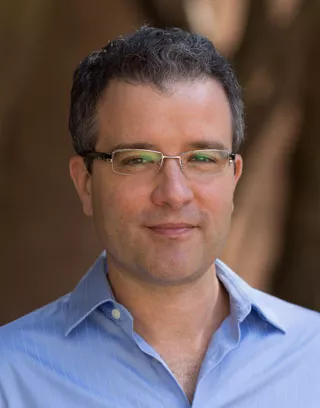UNBC's Polar Week Lecture Offers Glimpse into Future
Thirty years from now, the world could look a lot different should current global trends in population demographics, resource demand, economic globalization and climate change continue their current trajectories.
Professor Dr. Laurence C. Smith, the Department of Geography Chair from the University of California, Los Angeles, will offer an enlightened perspective on that future at a public lecture at the University of Northern British Columbia’s Prince George campus on Thursday, Feb. 2 at 7 p.m. at the Canfor Theatre (Rm 6-213).

His keynote lecture titled, The New North: Four Forces Shaping Our World in 2050, stems from his book, The World in 2050: Four Forces Shaping Civilization’s Northern Future.
“The northern latitudes are undergoing profound transformation due to pressures of human development and climate change,” said Dr. Smith. “UNBC is home to some of the world’s leading scholars studying these changes, and educates the broader public about them through their annual Polar Week and events. I’m keenly looking forward to my visit.”
During the first part of his presentation -- the Push -- Smith identifies key global pressures and trends in urbanization, population aging, energy technology, water supply, immigration, and the rising economies of China, India and the developing world.
In the Pull – the second part of Smith’s talk – he describes the emergence of a new geographic region, which he coins the Northern Rim. That region is comprised of Canada, the northern United States, Greenland/Denmark, Iceland, Norway, Sweden, Finland and the Russian Federation (called the Northern Rim Countries – NORC).
These eight northern countries and their surrounding seas will experience profound transformation over the next 10 years, making the Northern Rim a place of rising human activity and global strategic value relative to today.
Smith’s lecture is the first of two that he will be giving as part of UNBC’s seventh annual Polar Week on Jan. 30 to Feb. 3 and is organized by the Northern Studies and Geography Programs.
The week kicks off on Tuesday, Jan. 31 with a screening of the film, The Guardians of Eternity: Confronting Giant Mine’s Toxic Legacy, with Dr. Arn Keeling from the Department of Geography at Memorial University in St. John’s, N.L. The film will be shown in UNBC’s Weldwood Theatre (Rm 7-238) at 7:30 p.m.
“Polar Week is an opportunity to highlight UNBC as a northern university, and it’s a celebration that brings speakers who do research in northern countries onto campus,” said Northern Studies Chair, Professor Dr. Gary Wilson.
“We have a long history of engaging with Arctic organizations and many of our faculty do research in northern countries and teach courses. We’re a small university but we have considerable research capacity in northern and Arctic Studies.”
Smith’s second lecture, Supraglacial Rivers on the Greenland Ice Sheet, will be on Friday, Feb. 3 at 3:30 p.m. in the Canfor Theatre.
In addition to the final lecture of Polar Week, it’s also part of UNBC’s regularly scheduled Natural Resources and Environmental Studies Institute colloquium series.
Meltwater runoff from the Greenland ice sheet is a key contributor to global sea levels, but as a hydrological process has received little direct study. The project is using field, satellite, and UAV (unmanned aerial vehicle) technologies to assess surface water hydrology of the southwestern ablation zone, one of the most melt-susceptible areas of the ice sheet.
Smith’s research interests include the Arctic, hydrology, satellite remote sensing technologies and climate change. He has published more than 100 peer-reviewed journal articles, essays, and books including in the journals Science, Nature and PNAS and won more than $9 million in research funding from the National Science Foundation and NASA.
Keeling’s research and publications focus on the environmental-historical geography of Western and Northern Canada. His research has explored the historical and contemporary encounters of northern Indigenous communities with large-scale resource developments.